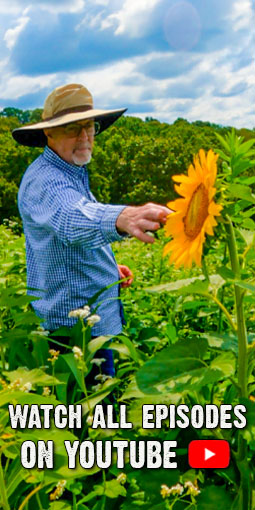Becoming a Wildlife Biologist
Filed under: Ask Grant, Wildlife Careers
Dr. Woods, My name is Matt and I am a third year college student (working toward a degree in Urban Forestry and Arboriculture). I have been watching all of your videos. The projects you do and the things you are able to study are incredible. After watching your show and seeing your title of wildlife biologist I started looking into careers in wildlife biology. I am seriously considering changing my plans and staying in school for a bit longer and getting a degree in Wildlife Management/Biology with a minor in Conservation Biology. I was hoping that you could give me some pointers and tips about this field of study and the career opportunities (possibly even a job outlook). I am passionate about white-tailed deer as I am a bow hunter through and through and everything else is merely done to pass the time until bow season. I have taken a great interest in altering the habitat on our family owned land and my next project is to ease into trapping with the help of one of my knowledgeable friends. Any knowledge and information you can share with me to guide me would be greatly appreciated. It really means a lot to me to get some insight and guidance from someone so successful in this field. Thank you very much for your time in reading this. Sincerely, Matt (Wisconsin)
Matt,
I’ve addressed several questions about becoming a wildlife biologist. You might check out my answer to Getting Involved and use the search feature to find more answers. I strongly believe that most folks can be successful at any occupation that they are passionate about. That doesn’t mean entering or advancing in that occupation will be easy or profitable. You should know that passion about hunting is not the same as passion about being a wildlife biologist. The two certainly complement each other. However, many wildlife biologists (including myself) spend more time helping other hunters and landowners than we do hunting. My strongest suggestion for you would be to spend a summer as an intern with a wildlife biologist that works in a specific area of your choosing. Spending a summer, even on a volunteer basis, is much less expensive in terms of dollars and time, then changing your degree and finding out that it was a bad choice. I believe that internships or similar programs are extremely beneficial to folks deciding which career path to take. I volunteered a summer through the Student Conservation Organization when I was a junior in college. I worked for the Bureau of Land Management at the Elko, Nevada District. I was only paid $25 per week and provided a small trailer for living quarters. It was a fabulous experience. My best counsel for you is to do an internship and see what being a wildlife biologist is really like before making a huge change in your degree program.
Experience is the best teacher!
Growing Deer together,
Grant



